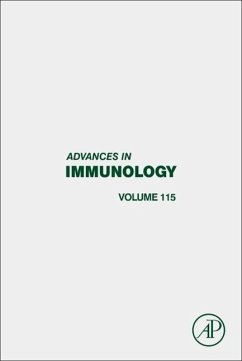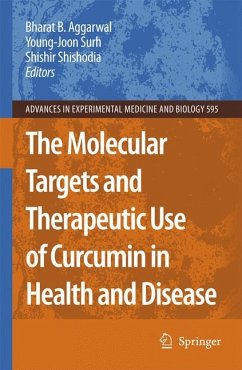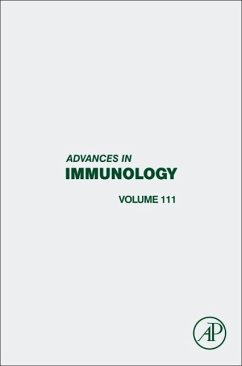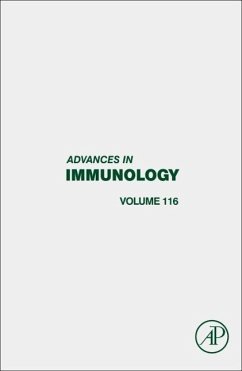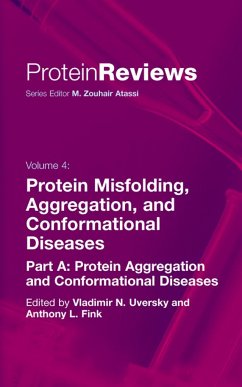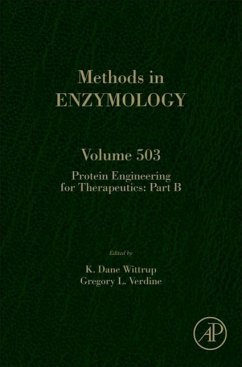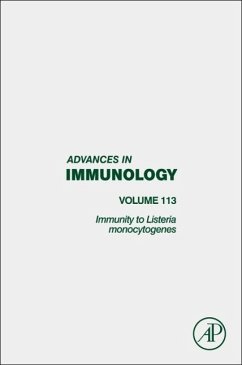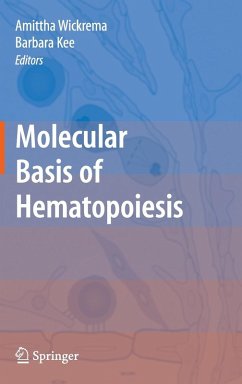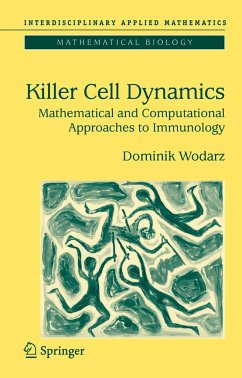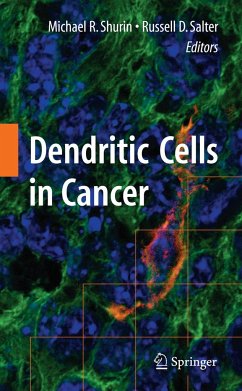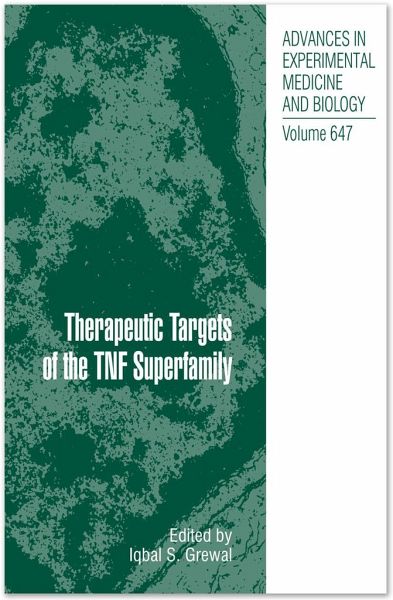
Therapeutic Targets of the TNF Superfamily

PAYBACK Punkte
57 °P sammeln!
For two decades, TNF superfamily has been the most investigated area of basic medical research. This book offers a state-of-the-art account of that research, including the role of TNF superfamily members to fight cancer and autoimmune disease.
Tumor necrosis factor (TNF) superfamily is a rapidly growing family of cytokines that interacts with a corresponding superfamily of receptors. Liga- receptor interactions of this superfamily are involved in numerous biological processes ranging from hematopoiesis to pleiotropic cellular responses, including activation, proliferation, differentiation, and apoptosis. The particular response depends on the receptor, the cell type, and the concurrent signals received by the cell. Worldwide interest in the TNF field surged dramatically early in 1984 with the cloning and defining of the profound cellular effects of the first member of this family, TNF . Subsequently, the major influence of TNF on the development and functioning of the immune system was established. Today, over 20 human TNF ligands and their more than 30 corresponding receptors have been identified. Few receptors still remain orphans. What has emerged over the years is that most TNF ligands bind to one distinct receptorand some of the TNF ligands are able to bind to multiple TNF receptors, explaining to some extent the apparent disparity in the number of TNF receptors and ligands. Yet, in spite of some redundancy in TNF ligand/receptor interactions, it is clear that in vivo spatial, temporal, and indeed cell- and tissue-specific expression of both ligands and their receptors are important factors in determining the precise nature of cellular, physiological and pathological processes they control. TNF superfamily has been the most highly investigated area of basic medical research for over two decades.





